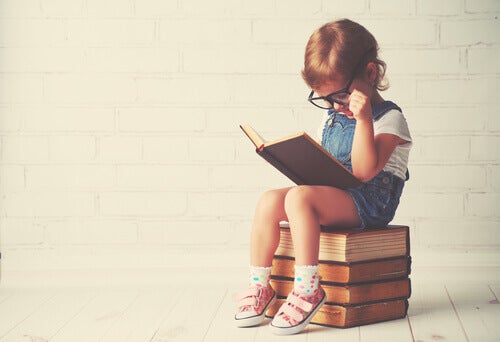Children want to learn. Their whole reality is a constant discovery of a new world for them. Throughout this process, books, letters, and words play a critical role as they will attract all your attention. a great tool to work with.
You’ve probably seen young children in front of a book making up stories, because they still can’t read, in those moments they interpret the drawings and imagine fabulous universes, without limits, far beyond their creative ability.
- However.
- During this initial development.
- The child will gradually learn to read.
- That is.
- To interpret the symbols that are the letters and that together produce words that have a clear meaning for him.
When the child already knows how to read, another process begins that not all parents take into account: understanding reading. What is the role of the family at this stage?As we will see below, the family plays a fundamental role.
Research from authors such as Stevenson and Rasinski shows that parents’ inclusion in improving fluency in reading children during the early stages of reading learning is justified and should be supported.
Rasinski and Stevenson studied the effects of parental involvement in a project to develop reading comprehension, involving family members of freshman students during an elementary school course.
In these analyses they studied the progress of children with various reading skills, and all were randomly distributed among experimental and control groups.
Parents with children in the control group performed support tasks, schools have asked them to perform, among other tasks, occasional but not systematic reading with children.
On the other floor, the children of the experimental group were trained by their parents to improve their reading comprehension, using materials specifically recommended by researchers and dedicating 15 minutes a day to work.
According to the study cited, students who received specific support from their parents during the experiment period were twice as positive as those of children who did not receive this assistance.
Children helped by their parents showed greater ability to recognize words, a task they also accomplished more quickly, as well as a better understanding and fluency in their readings.
In addition, it should be noted that the children who participated in the survey showed great enthusiasm for the experience, feeling great pleasure, in fact, they claimed to have learned to read better, to understand more easily the most difficult words and to learn. with every new reading.
“Learning to read was the most important thing that ever happened to me. “Mario Vargas Llosa?
We have already demonstrated the importance of family collaboration in improving children’s reading comprehension. So what can we do? Let’s look at a possible proposal for action.
We now know that the relationship between the family and the reading understanding of children is very important, so it is up to us, as parents and guardians of our children, to work in the right direction to promote the ideal development of the little ones.

